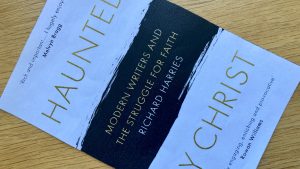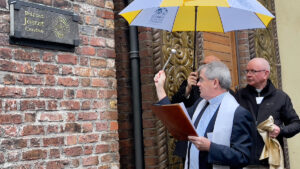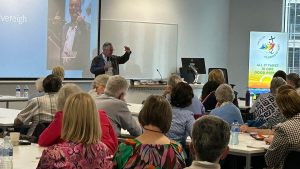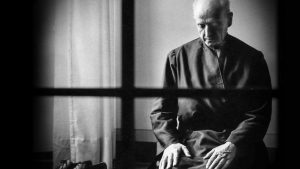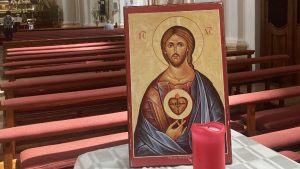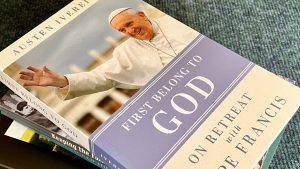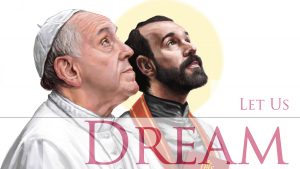Jesuit book club community
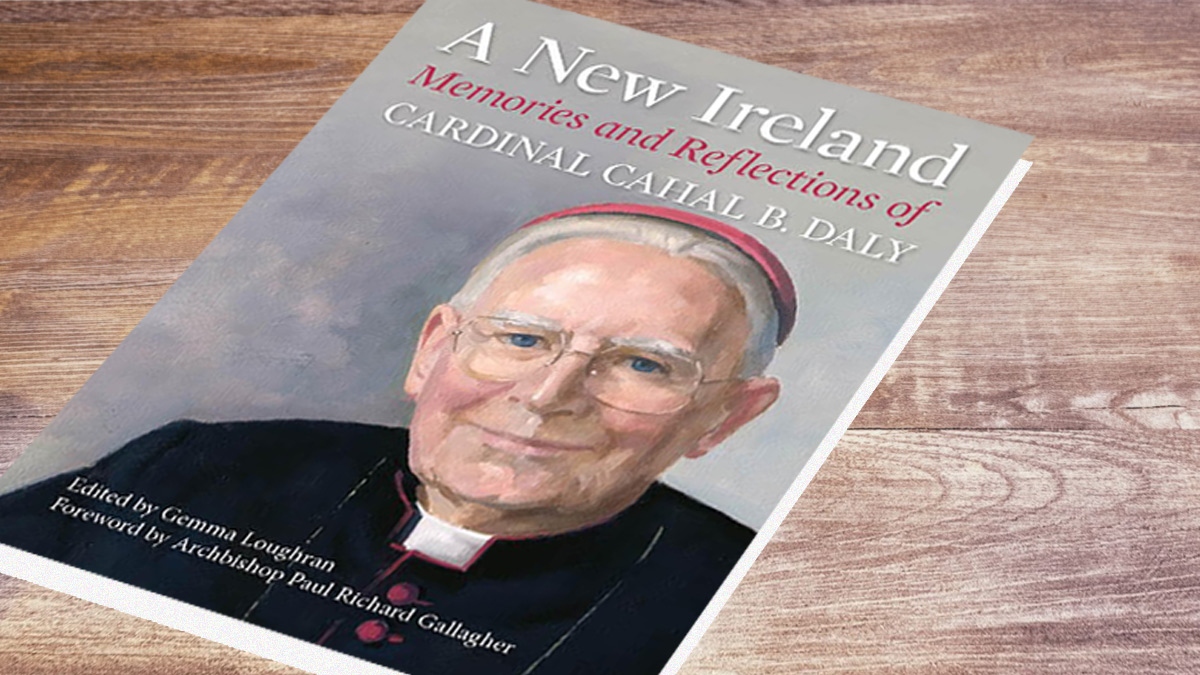
Brian O’Leary SJ’s Ignatius Loyola: Christian Mystic » (Messenger Publications) is the latest book chosen by the book club that gathers weekly online as part of the Belfast Jesuit Centre outreach.
Gerry Clarke SJ, director of the centre says they moved “thoughtfully and poignantly” whilst choosing the publication because it followed on from their previous book, a selection of homilies by the late Cathal Daly. The Veritas publication A New Ireland: Memories and Reflections of Cardinal Cahal B. Daly », edited by Gemma Loughran, brought back all sorts of memories, many painful and disturbing, for those in the book club from across the North and across the border. It also evoked a sense of gratitude that those awful years of death and destruction were largely part of the past.
The book club was inspired by Sonia Obregon, Secretary in Gardiner Street Church Dublin, a number of years ago and has now morphed into a Belfast Bookclub with a Dublin contingent. Members now meet online every Tuesday evening and Gerry Clarke says all newcomers are most welcome to join.
“We have a core group that is there for most nights, but there are others who pop in and out for different books or indeed different sections of the particular book,” says Gerry. “I look forward to it every week, because it’s not just about the book learning, it’s also about the depth of insight and sharing that occurs and leaves us all with a real sense of community.” Read his reflection below on the two latest books impacting the book club members.
Becoming an Everyday Mystic
Cardinal Cahal Daly’s funeral homilies brought it all back. 30 years of the Troubles in Northern Ireland which we have all but forgotten. New generations don’t know what you mean by Omagh, Kingsmill, Shankill, Warrenpoint or Dublin and Monaghan for that matter. I don’t mean the geographical places: I mean what happened there.
For many, he was one of the most even-handed spokespersons of the period and reading his words of horror and then the crystal-clear condemnation of murder is astonishingly refreshing. Browsing Cardinal Cahal B. Daly: Memories and Reflections stops you in your tracks and reminds you what we lived through back then, north and south.
But these homilies were only heard in full by the grieving families of victims with only ‘soundbites’ being reported in the newspapers or on the TV. So, they are a new discovery and make you feel what it was like during those years. Like an Ignatian composition of place” in prayer, reading the Cardinal’s words overwhelms you with the pain of it all. At the same time you and feel calmed by the sense and balance of his response.
And yet, we had all given up listening. The prelates’ hearts were indeed in the right place but conflict is complex and issues of justice and peace are not easily resolved by simply distilling the problems down to two opposing communities locked in conflict, unable to listen, unable to hear.
Whilst the pastors were trying to deal with one funeral after another, they did what they did best, responding liturgically and pastorally to grief and pain. But, as voiced by some of our bookclub attendees, their foray into the political realm, even if it was ‘politics’ with a small ‘p’, was much less successful and much less nuanced or insightful. To use a sports metaphor, you could say that Cardinal Cahal Daly, like other northern Church leaders, had ‘lost the dressing room.’
So, thoughtfully and poignantly we closed that book and moved to our next title. We’ve chosen Brian O’Leary’s Ignatius Loyola: Christian Mystic. As always we will read it all – preface, introduction, seven chapters, and the epilogue. And, as always with Brian’s writing, the spiritual becomes very grounded, very quickly. No escape here to specialist realms for our readers but a call to the everyday mysticism open to every Christian “provided they do not put major obstacles in the way”.
I was taken by those words of Brian. What would be a ‘major obstacle’ to becoming an everyday mystic? But more encouraging is, again, that notion that we can all be mystics. It’s not only for those with esoteric knowledge or abilities. Each of us is a mystic in action or, as we also put it, a contemplative in action. And we are joined by the great mystics of our tradition like smaller hills in a vast mountain chain. Some of the peaks soar above the clouds; some remain foothills, but all are parts of this mountain chain, rooted in the community in the body of the Church.
Actually, Christian mysticism is never esoteric. It’s always spiritual but always worldly as well, bringing you back, as Brian does, to Lectio Divina and reading the word together. I think of the hours spent poring over the Sunday Gospels, breaking the Word together, using the five spiritual senses: seeing, hearing, smelling, tasting, and touching. And perhaps the sixth spiritual sense (dare I coin a sixth sense?), sharing. So do share with us in reading this next title with the Belfast Jesuits Cross-Border Book Club by emailing: [email protected] and visiting our website »
Gerry Clarke SJ
Spetember 2023


